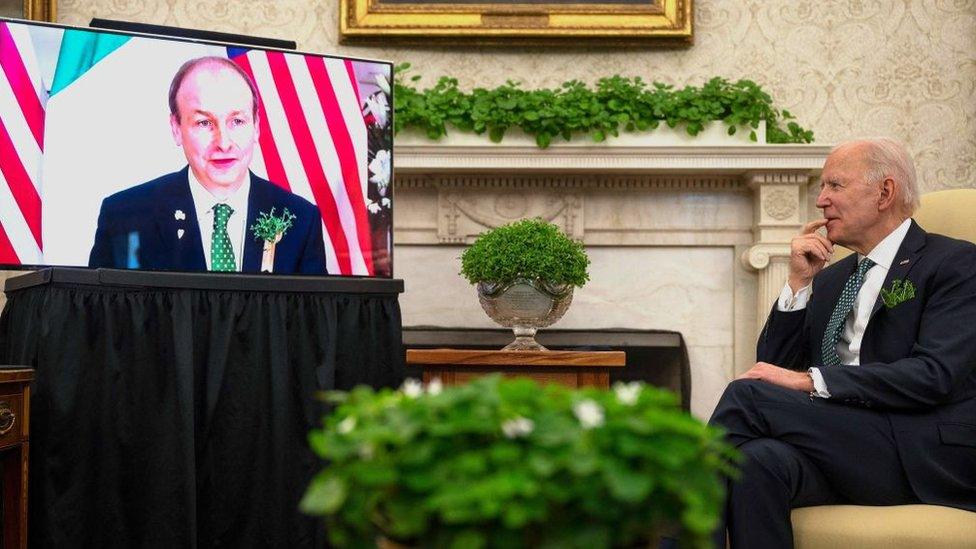Waiting lists: £400m health funding 'may sit in limbo'
- Published
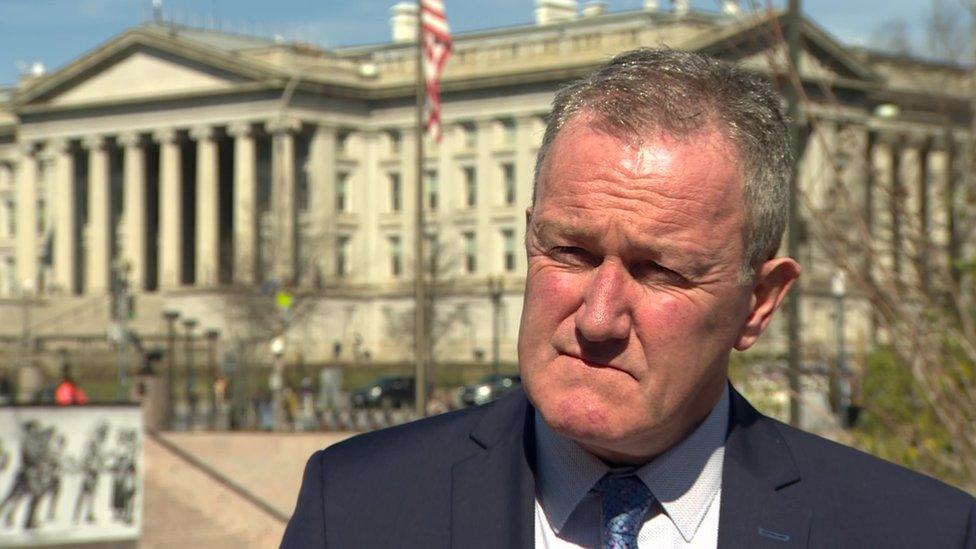
Conor Murphy is in Washington ahead of the city's St Patrick's Day events
Stormont Finance Minister Conor Murphy has warned that £400m in extra health spending may sit in limbo until the executive is re-formed.
He is seeking support from other ministers to allow the money raised through increases in national insurance rates to go to health.
This would allow health to "plan on the basis that they will have it", he said.
However, Mr Murphy explained there was "clear legal advice" the money could only be allocated by the executive.
Northern Ireland's governing body collapsed in February when Paul Givan resigned as first minister, a move which also removed Michelle O'Neill as deputy first minister.
Other ministers have continued to oversee their departments, ahead of the next Stormont election in May.
'Some degree of certainty'
Speaking in Washington DC on Tuesday ahead of the city's St Patrick's Day events, Mr Murphy suggested there had been "deliberate confusion" caused about what decision-making powers existed without an executive.
He accused the Democratic Unionist Party (DUP) of "throwing in various solutions which don't stack up".
The DUP has previously suggested there are other ways to allocate money without it needing to be signed off by ministers.
Re-nominating a first minister would allow decisions to be taken "this week", Mr Murphy continued.
The finance minister explained his consultation with other ministers would help give "some degree of certainty" about what can be spent in the new financial year.
A "rollover" budget will be managed by the senior official in the department to make sure public services are still funded.
It will be advising that projects which have been specifically agreed by the executive or that receive ringfenced funding from the treasury can expect to be funded.
These include farm subsidies and victims' pensions.
However, £300m which Stormont received as a result of the UK spending review still cannot be allocated.

Health Minister Robin Swann said he would bid for money to tackle waiting lists
There has been a growing clamour to use this money to help lower income households with the cost of living crisis.
The Department of Finance is to ask other departments for costed proposals which could then be funded if the executive was to be restored.
Health Minister Robin Swann said his department has indicated, if agreed, it would bid for £26m of the £300m to tackle waiting lists.
He said he was "conscious" of the additional demands within other departments to help manage cost of living issues.
"We could have bid for more but we have to be realistic and proportionate about the greater need as well," Mr Swann said.
If an executive cannot be restored then a budget will have to be passed at Westminster.
This has happened previously when the executive was in suspension.
Related topics
- Published1 November 2017
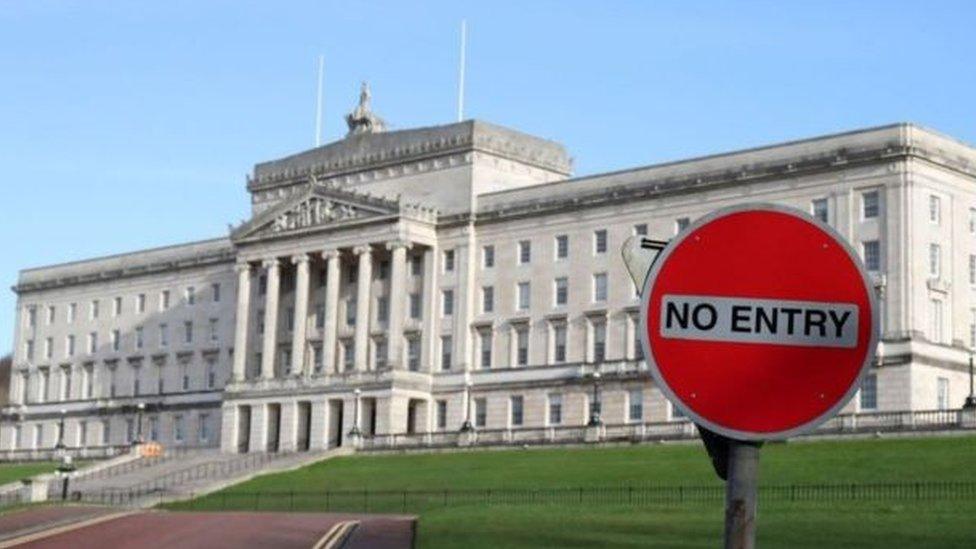
- Published3 February 2022
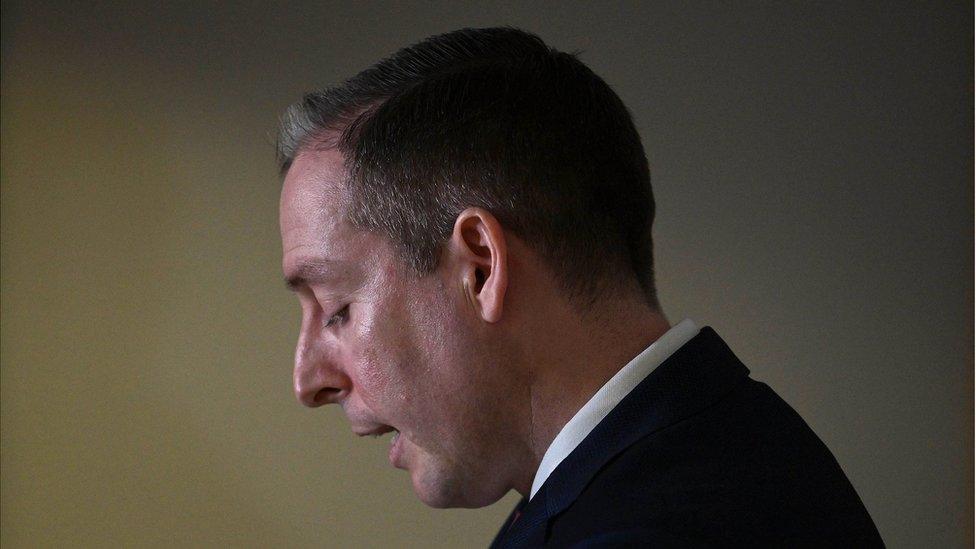
- Published10 March 2022
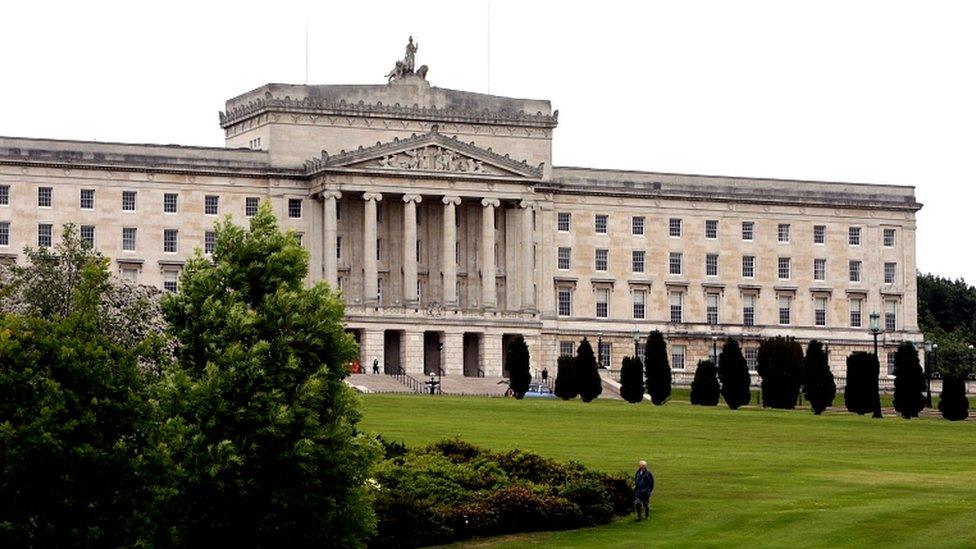
- Published14 March 2022
